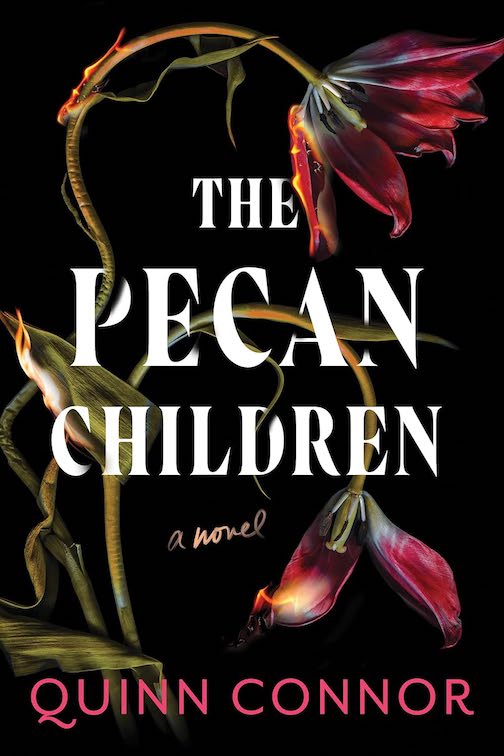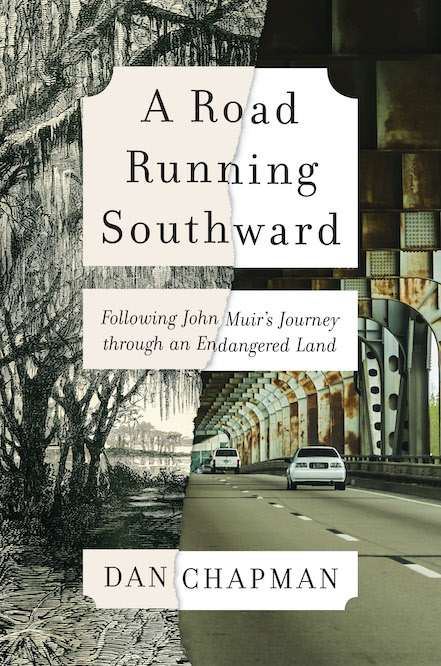A Surveyor in the Back of Beyond
Ron Rash’s Something Rich and Strange reveals a master storyteller charting his terrain
In “Last Rite,” a story in Ron Rash’s new collection, Something Rich and Strange, the main character is discouraged from seeking the barely marked grave of her murdered son. “That gap where they found him, it’s the back of beyond,” the sheriff tells her. “They don’t even know what state that place is in, much less what county.” But the grieving mother drags the town’s new surveyor and her son’s widow, soon to remarry, on an exhausting climb up steep rocky paths, searching the woods where her boy lies buried. She knows his story is not yet done, that finding him will revive his memory, fill a blank line in their family Bible, and stretch the borders of mapped territory a little farther.
 Something Rich and Strange arrives at a time when Ron Rash has achieved wide recognition as a masterful craftsperson. With this collection, drawn from more than twenty years of short stories set in the Southern Appalachians, Rash seals his position as this landscape’s foremost literary mapmaker and guide. His stories survey this world all the way around the compass wheel, in the process giving them breadth and depth of numerous kinds—emotional, psychological, historical, sociological, and mythological.
Something Rich and Strange arrives at a time when Ron Rash has achieved wide recognition as a masterful craftsperson. With this collection, drawn from more than twenty years of short stories set in the Southern Appalachians, Rash seals his position as this landscape’s foremost literary mapmaker and guide. His stories survey this world all the way around the compass wheel, in the process giving them breadth and depth of numerous kinds—emotional, psychological, historical, sociological, and mythological.
Heartbreaking stories like “Back of Beyond” and “The Ascent,” for example, measure the costs of the Appalachian meth scourge in highly personal terms. Both stories foreground the predicaments of people trying to fight for better times even as they watch their loved ones suffer: “His mother sat on the couch wrapped in a quilt, shivering. She hadn’t bathed since Friday and her hair was stringy and greasy. His father looked little better, his blue eyes receding deep into his skull, his lips chapped and bleeding.” In subject matter that could easily go wrong, Rash doesn’t skimp on tough realistic details. But he doesn’t skimp on hope, either.
Stories from earlier centuries feature Depression-era people fighting internal hardness in the face of brutal poverty and the home-front dilemmas brought about by the violence of the Civil War. One of this book’s great joys lies in the fact that no character appears stuck in time or costumed in any way. Rash writes with such authority and heart about these communities that distinctions of history start to matter less and less. When a town doctor contemplates the young men returning home from the Civil War, he remarks on the quick passing of time: “I’ve watched others become gray and decrepit yet somehow presumed it was not happening to me. Is it so with you?” The line highlights the care that Rash takes to show the enduring, recurring nature of people’s interior struggles. In this way, every story feels current.
Rash’s power to distill language achieves the paradoxical effect of increasing his stories’ complexity. His descriptions constantly evoke the tremendous power of the mountain settings though always in the service of the characters at hand. This element of Rash’s craft begins to seem like a naturally occurring phenomenon in the landscapes themselves. “The Woman in the Pond” opens with a passage that illustrates the depth of Rash’s engagement with nature, which becomes a conveyor of human experience:
Water has its own archaeology, not a layering but a leveling, and thus is truer to our sense of the past, because what is memory but near and far events spread and smoothed beneath the present’s surface. A green birthday candle that didn’t expire with a wish lies next to a green Coleman lantern lit twelve years later. Chalky sun motes in a sixth-grade classroom harbor close to a university library’s high window, a song on a staticky radio shoals against the same song at a hastily arranged wedding reception.
 At times, the stories’ mountain setting even gains celestial dimension. In one of the book’s most touching stories, “Three A.M. and the Stars Were Out,” two old friends contemplate the night sky after exhausting themselves during the delivery of a distressed calf. One of the men says of the bright stars above them, “When I was in Korea, I’d find the Big Dipper and the Huntress and the Archer. They hung in the sky different but I could make them out, same as if I was in North Carolina. There was a comfort in doing that, especially when the fighting got thick.”
At times, the stories’ mountain setting even gains celestial dimension. In one of the book’s most touching stories, “Three A.M. and the Stars Were Out,” two old friends contemplate the night sky after exhausting themselves during the delivery of a distressed calf. One of the men says of the bright stars above them, “When I was in Korea, I’d find the Big Dipper and the Huntress and the Archer. They hung in the sky different but I could make them out, same as if I was in North Carolina. There was a comfort in doing that, especially when the fighting got thick.”
It’s a gamble to fashion such enmeshed relationships between characters and their settings: this kind of fiction runs the risk of turning sentimental or arch. Rash skillfully avoids both pitfalls through the precise calibration of his characters’ actions. The peaks and coves of these mountain ranges may hide innumerable dangers, but the human snares are the ones that cause the greatest wounds.
Indeed, Rash’s characters often suffer sudden, decisive swipes of violence. An errant saw costs a drunken pulpwood cutter his leg. War wounds follow soldiers home. Time itself can be a menace to the people of Rash’s fictional world. The protagonist of the brilliant story “Into the Gorge” finds himself running from Park Service authorities, but there’s a bigger escape attempt happening within this chase. He’s running to escape from the erosion of memory, from homelands always changing hands, from the betrayals of his mortal body.
Something Rich and Strange keeps us oriented as we travel the hidden passes and coves of its storied yet mysterious landscape. Through their precision and descriptive power, Rash’s stories reveal a few new trails through the old-growth forests of human trouble and hope.

Emily Choate holds an M.F.A. from Sarah Lawrence College. Her fiction is forthcoming from The Florida Review and The Double Dealer, and her reviews have appeared in Yemassee and Tennessee Libraries. She lives in Nashville, where she’s working on a novel.


